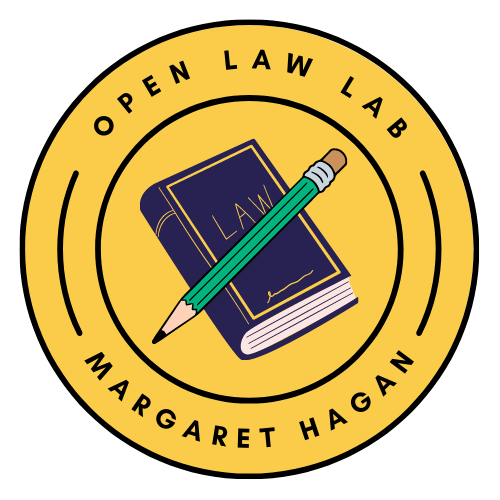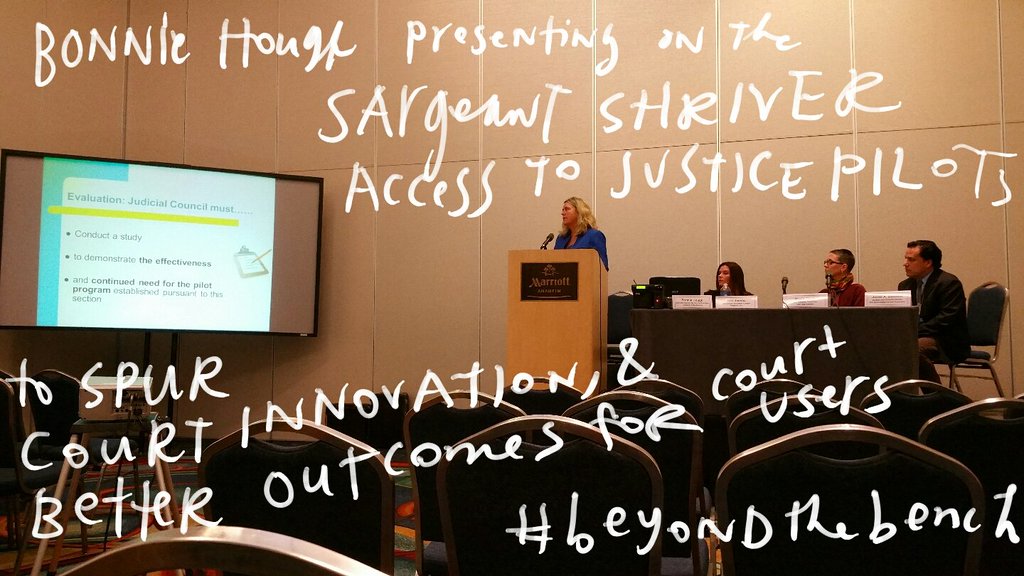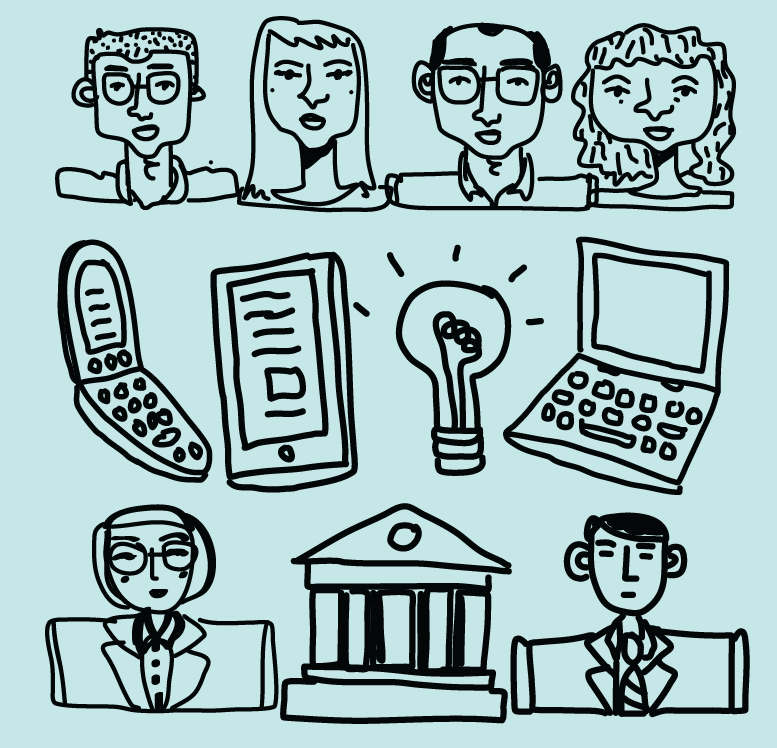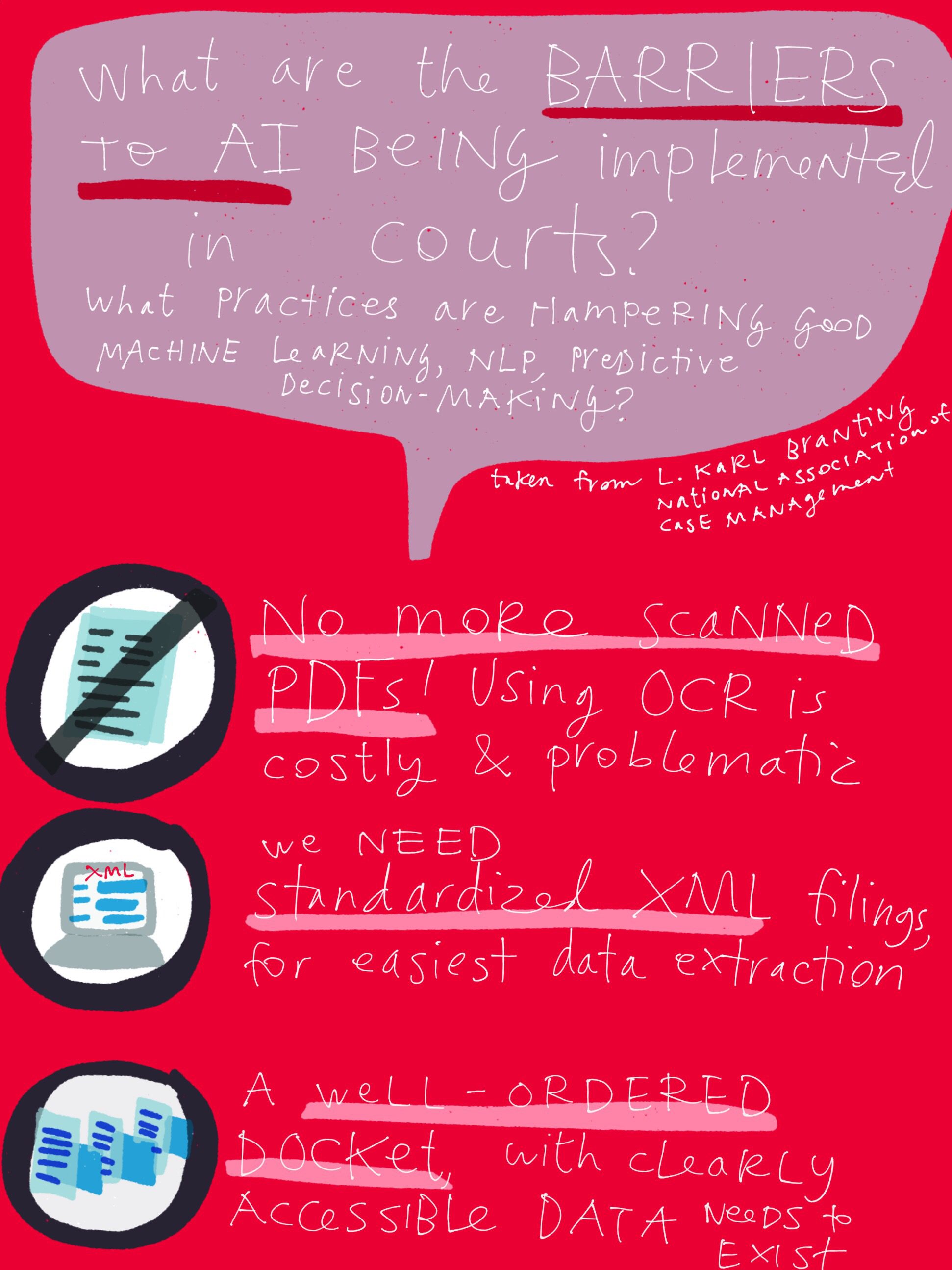 Today at the Judicial Council’s Beyond the Bench conference on innovations and user experience in family law & the justice system, I had the privilege to hear a presentation from Bonnie Hough & 3 different lawyers on the Sarget Shriver Access to Justice pilots that are being run to provide lawyers to people in civil cases, who need legal help.
Today at the Judicial Council’s Beyond the Bench conference on innovations and user experience in family law & the justice system, I had the privilege to hear a presentation from Bonnie Hough & 3 different lawyers on the Sarget Shriver Access to Justice pilots that are being run to provide lawyers to people in civil cases, who need legal help.
It was meant to take the form of the Civil Gideon, to provide representation to people in civil cases. But there are still lots of people who remain unrepresented. So the program also opened the door to projects that help non-represented people, to make court easier
Starting in 2012, the program had pilots to spur Access to Justice in California, especially for low-income population. They were aimed at three main areas:
- housing matters
- guardianship and probate conversatorship
- child custody (when there is a request for sole custody) and domestic violence — and this is among the highest priorities (though it is capped at 20% of the total funds)
Orgs were eligible to get grants for pilots if they are a collaboration between:
- they are a qualified legal services nonprofit, that gets IOLTA funds
- local court, and
- other legal service providers in the community
They had to be doing something innovative to help unrepresented parties in the proposed case types including new court procedures, court personnel training, or case management and administration methods.. And, the cases had to be for those where it was likely that the other side would be represented by lawyers
Other considerations about what is getting funded. Would there be positive consequences for social services — can we alleviate all the social and family bad outcomes, by having a positive legal intervention? Will it harm the unrepresented party if they aren’t represented? As the program administers legal help, it must screen for:
- complexity of the case
- if party is represented
- if self help could resolve it
- if there are language, literacy, and disability access
- could legal services reduce the social services costs
- what are the merits of the case
- what are potential consequences if the person isn’t represented
And overall metrics that they look at when judging the pilots:
What effect does counsel have on access to justice?
What impact does it have on families and children?
What effect does it have on court efficiency and administration?
How the program operates
In the San Diego pilot, they’ve served hundreds of clients directly, and then hundreds more with self-represented services.
An attorney screens people at the self help center, as they are waiting in line — to get them for a free lawyer, rather than just legal information. The court has worked with them to set up a process, so if the client shows up in court for an RFO hearing, and the other side shows up with a lawyer, then the client can get bumped to a “Shriver case” so that they get a continuance and a lawyer through the program.
To expand services further, in March 2015 they began to assist people with their Domestic Violence restraining orders. In those cases, most of them had children. If it turns into full blown custody with the opposing party having an attorney, than the Shriver attorneys stay on the cases.
The San Diego program also has Settlement Conferences for parties with lawyers, to meet with a Shriver family court judge (never the trial judge), so that clients can go before them, get listened to, and hear what’s likely to happen. The parties have counsel there to talk things through. It’s not about mediation, where they go in blind, and they don’t get feedback about what a judge might do. Also, having a lawyer there can also stop the person from talking too much, and being their own worst enemy.
They get a high settlement rate — 70% success. The judge is great because he helps people understand why they are there. He can talk them into the best interest conversations, rather than the knee-jerk reactions. This high settlement rate is successful on two counts — improving efficiency, and improving the litigants’ buy-in to the settlement (and hoping that they don’t file again).
In San Francisco, they were surprised when cases ended up going to trial more than expected, perhaps because the litigants then become more aware of their options and want to use them. So now they’re encouraging judicial conferences with judges who aren’t otherwise involved in the trial, like San Diego had been doing.
What can we learn about the effect of having a lawyer in civil matters?
Lawyers help people be strategic, protect themselves: These people have cases that are going on for years, and the lawyers can help them make sense of their suitcases of documents. They are also very emotional, they don’t understand the rules and the system — how to be strategic, how to conduct yourself, preventing them from having to come back time and time again. Also, helping to understand “What does this order say?” — and “How do I not violate it?”
Tough to understand Long Term Outcomes: Some cases are easier to measure long term effects than others. If we can get custody cases dealt with earlier, with lawyers where there otherwise wouldn’t be — we could stop these particularly difficult cases from spiraling out of control. With housing law, we can gather information about the effects of the interventions more cleanly. It’s hard to do that with family matters — especially custody — because there are so many issues and interventions happening, it’s hard to get to cause and effect.
Never Perfect Happiness, but More Procedural Justice: What they’ve learned is that it’s hard to get satisfaction (no one is ever satisfied with their custody arrangement), but you can get more satisfaction than where they started. Especially when they feel that they have gotten their voice heard, and that someone is on their side.
When Lawyers Really Add Benefit: Counsel is particularly effective in three wicked areas:
- There are unclear or unenforceable court orders on the record. The judge is going to need a lawyer to make sense of them.
- There is a bad court case history, with lots of denied ex parte requests, and with limited custody orders because of domestic violence, mental health, or substance abuse. A lawyer can help the Bench ‘get comfortable’ with what’s really going on, and explain some flare-ups of emotions or problems so they don’t have lasting effects
- There are hard hearings, with high burdens to meet, that a layperson can’t do on their own — like proving that there is changed circumstances
What kind of interventions we need, to provide better services
More Lawyer Representation, with the intent to calm inflammations and get strategic: We need lawyers in family courts. In Family Court, we have good people on their worst behavior. Lawyers can help calm the flames, give advice to be strategic and efficient, and to start unwinding this complex system for the people who are going through it. There was an article in the Yale Law Journal arguing that the Civil Gideon would just cause more problems, but the SF experience shows that if lawyers get involved in family law cases, they can reduce needless litigation and court problems, and improve the sense of ‘being heard’ and getting something (if not the perfect outcome).
Earlier Triage of “Difficult” Cases that Need Lawyers: How can we catch the difficult family law cases early, to intervene earlier, so that they wouldn’t get off the tracks?
A wider notion of “Eligibility”: Often, eligibility was an issue to get the pilot working the way it should. It was hard to get people to qualify, many people “weren’t poor enough” to be eligible. Also it was common for the other party to not have an attorney either, so they couldn’t meet that requirement. They weren’t serving the amount of people they wanted to, so they set up a Self Help Clinic inside the family law facilitator’s office.
More judges taking a lead: These are high conflict issues, with Child Welfare Service involved. And with mental health, substance issues, and domestic violence/child abuse issues. Mediation can’t deal with this level of complexity. Judges (especially those not involved in the cases) can have a great influence in calming parties down, getting them to be more realistic, and starting to be more strategic.
The Bench Referring people to the Shriver program. There need to be neutral referrals from bench officers, how to make them comfortable with this process so that they have confidence in it
Putting Shriver resources centrally in the Court — and beyond: Location matters so much. Being in a central place in the courthouse can have enormous impact, raising the numbers of referrals.
Lawyer help combined with Wrap-around services, with lots of different kinds of care — holistic, medicine, mental health and beyond make a big difference for these complicated life problems.




